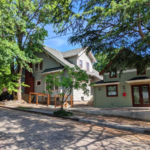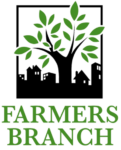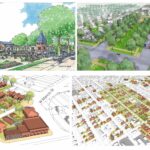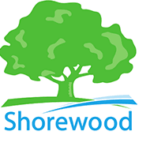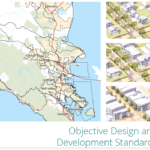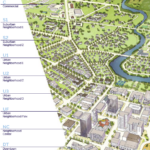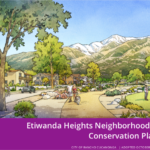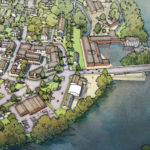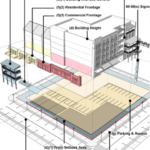Like the Oscars, but for zoning

The Richard H. Driehaus Form-Based Code Award is back for its 12th year! If your community has adopted a form-based code that is promoting people-scaled development and a mix of uses, send us your code.
The Driehaus Award recognizes exemplary form-based codes that advance the practice of form-based zoning in both composition and implementation. Both newly-adopted and established codes showing positive built results are eligible.
Submissions are due by 5:00 p.m. Eastern Time on Friday, April 17. Details can be found on the Form-Based Codes Institute’s website, including the application form and instructions, previous winners, the 2020 Awards Jury, and eligibility requirements. For additional information, contact Tyler Quinn-Smith.
What makes an award-worthy form-based code?
Last year’s award recognized three communities employing form-based codes to retain unique character and encourage predictable, walkable development that supports life’s daily needs. The downtown code for Lafayette, Louisiana received accolades from award jurors for its simplicity, superb graphics, and innovative parking policy. Buffalo, New York’s Green Code was praised for its complex city-wide application and streamlined, foolproof development process. And an honorable mention was given to the Canton, Connecticut for its effort to improve an auto-oriented suburban corridor. Learn more about the winners.
Form-based codes pose a significant advantage over auto-oriented, use-based zoning by focusing on the relationship between blocks, buildings, and public spaces. If properly written and implemented, form-based codes can promote human-scaled places that encourage a mix of uses and support walkability. Our jury of experts will examine the codes and consider the following criteria before choosing a winner:
- Will the code deliver a predictable street character (public space)?
- Is the code implementable and relatively easy to use?
- Does the code have relevant and distinguishing features that advance the practice?
- Will the code promote good urbanism (has it resulted in high-quality development activity)?
If you answered yes to any of the above, we strongly encourage you to submit a nomination.



